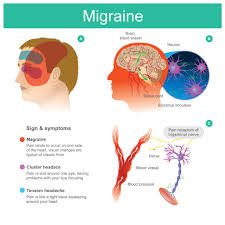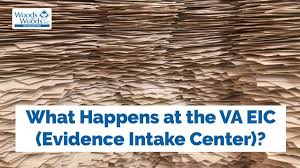The Easiest VA Disability Claims to Pursue
When it comes to filing for VA disability benefits, some claims are generally considered easier to pursue than others. While each case is unique and the process can be complex, there are certain disabilities that tend to have higher approval rates and require less documentation. Here are some of the easiest VA disability claims to consider:
Tinnitus
Tinnitus, or ringing in the ears, is a common condition among veterans due to exposure to loud noises during military service. It is one of the most common disabilities claimed by veterans and typically receives a high approval rate.
Post-Traumatic Stress Disorder (PTSD)
PTSD is another common disability among veterans and has become more widely recognized in recent years. The VA has made it easier for veterans to claim PTSD-related benefits by providing clearer guidelines and resources for diagnosis and treatment.
Hearing Loss
Hearing loss is often linked to tinnitus and can also be caused by exposure to loud noises during military service. Veterans who can provide evidence of hearing loss may find it relatively easier to claim disability benefits.
Scars
Scars resulting from injuries sustained during military service are usually straightforward to document and can lead to a successful disability claim.
Limited Range of Motion
Injuries that result in limited range of motion, such as joint injuries or amputations, are typically easier to prove through medical records and examinations.
While these disabilities may be considered easier to claim, it is important for veterans to seek assistance from a qualified representative or advocate when filing for VA disability benefits. Each case is unique, and having professional guidance can help ensure a smoother process and increase the chances of a successful claim.
Understanding the VA Disability Claims Process: Insights on the Easiest Conditions to Claim and Tips for Success
- What is the easiest VA disability to claim?
- Why is tinnitus considered one of the easiest VA disabilities to claim?
- How can veterans provide evidence for hearing loss when claiming VA disability benefits?
- What resources are available for veterans seeking to claim PTSD-related benefits?
- Are scars from military service generally easy to document for a disability claim?
- What types of injuries can result in a limited range of motion that may qualify for VA disability benefits?
- Is it advisable for veterans to seek assistance when filing for VA disability benefits, even for ‘easy’ claims?
- Are there specific guidelines or criteria that make certain disabilities easier to claim with the VA?
- How can veterans ensure a smoother process and increase their chances of success when claiming an ‘easy’ VA disability?
What is the easiest VA disability to claim?
When veterans inquire about the easiest VA disability to claim, common responses often include conditions such as tinnitus, post-traumatic stress disorder (PTSD), hearing loss, scars, and limited range of motion. These disabilities tend to have higher approval rates due to clearer guidelines for diagnosis and documentation. While each case is unique and the process can still be complex, seeking assistance from a qualified representative or advocate can help navigate the VA disability claims process effectively. It is essential for veterans to understand that professional guidance can increase the likelihood of a successful claim, regardless of the perceived ease of claiming a particular disability.
Why is tinnitus considered one of the easiest VA disabilities to claim?
Tinnitus is often regarded as one of the easiest VA disabilities to claim due to its clear link to military service. Many veterans experience tinnitus as a result of exposure to loud noises during their time in the military, such as gunfire, explosions, or aircraft noise. This direct connection between the condition and military service makes it relatively straightforward to establish eligibility for VA disability benefits. Additionally, tinnitus is a well-documented medical condition with recognizable symptoms, making it easier for veterans to provide evidence and support their claim during the application process.
How can veterans provide evidence for hearing loss when claiming VA disability benefits?
When veterans are claiming VA disability benefits for hearing loss, they can provide evidence through various means. One common way is to submit medical records that document any hearing tests conducted during their military service or afterward. Veterans can also provide statements from fellow service members who can attest to the loud noises they were exposed to in combat or training environments. Additionally, veterans may undergo a Compensation and Pension (C&P) exam where a VA healthcare provider evaluates their hearing loss and provides a medical opinion. These pieces of evidence can help support the veteran’s claim for hearing loss as a VA disability and increase the likelihood of a successful benefits approval.
What resources are available for veterans seeking to claim PTSD-related benefits?
For veterans seeking to claim PTSD-related benefits, there are several resources available to assist them through the process. The Department of Veterans Affairs (VA) offers comprehensive information on their website regarding PTSD, including eligibility criteria, required documentation, and how to apply for benefits. Veterans can also reach out to local VA offices or Vet Centers for personalized assistance and guidance. Additionally, there are numerous veteran service organizations and advocacy groups that provide support and resources specifically tailored to veterans with PTSD, offering legal assistance, counseling services, and connections to mental health professionals. By utilizing these resources and seeking help from knowledgeable professionals, veterans can navigate the complexities of claiming PTSD-related benefits more effectively.
Are scars from military service generally easy to document for a disability claim?
Scars resulting from military service are often considered relatively easier to document for a disability claim. Unlike some conditions that may require extensive medical testing or ongoing monitoring, scars are typically visible and can be easily verified through medical records or examination. Veterans can provide documentation such as surgical reports, photographs, or statements from healthcare providers to support their claim related to scars. While the process may still require thorough documentation and evaluation, the visibility of scars generally makes them one of the more straightforward disabilities to prove in a VA disability claim.
What types of injuries can result in a limited range of motion that may qualify for VA disability benefits?
Injuries such as joint injuries, amputations, fractures, and soft tissue injuries can result in a limited range of motion that may qualify for VA disability benefits. These injuries can significantly impact a veteran’s ability to perform daily activities and may require ongoing medical treatment or rehabilitation. Veterans experiencing limitations in their range of motion due to these types of injuries should seek medical evaluation and documentation to support their claim for VA disability benefits. It is essential to provide comprehensive evidence of the injury, its impact on mobility, and any associated symptoms to increase the likelihood of a successful claim approval.
Is it advisable for veterans to seek assistance when filing for VA disability benefits, even for ‘easy’ claims?
It is highly advisable for veterans to seek assistance when filing for VA disability benefits, even for claims that are considered ‘easy.’ While some disabilities may have higher approval rates and require less documentation, navigating the VA disability claims process can still be complex and overwhelming. Seeking assistance from a qualified representative or advocate can help veterans ensure that their claims are properly documented, submitted, and advocated for. Professional guidance can also help veterans understand their rights, benefits, and options available to them, ultimately increasing the likelihood of a successful claim outcome.
Are there specific guidelines or criteria that make certain disabilities easier to claim with the VA?
When it comes to filing for VA disability benefits, there are certain guidelines and criteria that can make certain disabilities easier to claim. Disabilities that are well-documented, have a clear link to military service, and can be easily verified through medical records or examinations tend to have higher approval rates. Conditions like tinnitus, PTSD, hearing loss, scars, and limited range of motion often fall into this category. The VA provides specific guidelines for each disability type, outlining the evidence needed to support a claim. By understanding these criteria and providing thorough documentation, veterans can increase their chances of successfully claiming benefits for these easier-to-prove disabilities.
How can veterans ensure a smoother process and increase their chances of success when claiming an ‘easy’ VA disability?
When veterans are pursuing an ‘easy’ VA disability claim, there are steps they can take to ensure a smoother process and increase their chances of success. First and foremost, it is crucial for veterans to gather all relevant medical documentation supporting their disability claim. Seeking assistance from a qualified representative or advocate who understands the VA disability claims process can provide valuable guidance and support. Veterans should also be thorough in completing their claim forms and ensure that all required information is accurately provided. Additionally, staying informed about the specific requirements for the claimed disability and following up promptly on any requests from the VA can help expedite the process and improve the likelihood of a successful outcome.




